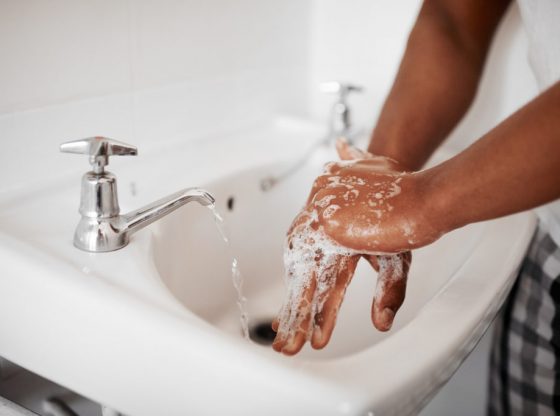To stem the tide of COVID-19, the advice from all major health bodies is to wash your hands properly and frequently. However, regular hand washing can exacerbate skin conditions, such as eczema or psoriasis. In this feature, we ask the experts for advice.
 Share on Pinterest
Share on PinterestFor live updates on the latest developments regarding the novel coronavirus and COVID-19, click here.
Starting in Wuhan, China, the novel coronavirus — now named SARS-CoV-2 — has reached every continent on earth except Antarctica.
Because the virus is new to science, researchers are still searching for ways to prevent, treat, or cure the disease.
Institutions, such as the World Health Organization (WHO) and the Centers for Disease Control and Prevention (CDC), have set out their recommendations. At the forefront of these is thorough hand washing with alcohol-based hand gels or soap and water.
Hand washing is one of the most powerful ways to slow the spread of infectious diseases.
However, for individuals with particularly dry skin or skin conditions, such as eczema or psoriasis, excessive hand washing can result in skin damage and sore hands. Even for individuals with healthy skin, overuse of soaps and hand sanitizers can cause the skin to dry out and crack.
As Dr. Zainab Laftah, consultant dermatologist and a spokesperson for the British Skin Foundation explained to Medical News Today:
“Repetitive use of hand sanitizers and hand washing can strip the proteins in the epidermis (top skin layer), leading to a compromise of the skin barrier and, therefore, the risk of infection. Additionally, soaps can give rise to irritant hand dermatitis, which presents as dry, flaky, itchy red skin, particularly in the finger web spaces and on the knuckles.”
To avoid this, Dr. Laftah recommends “the use of a regular moisturizer.”
Individuals with preexisting skin conditions are more at risk of skin damage. These people “may benefit from hand washing with a moisturizer that contains an antibacterial ingredient, for example, chlorhexidine or benzalkonium chloride,” explains Dr. Laftah.
However, she notes that a recent study reported that “hand sanitizers containing these biocidal ingredients were less effective than alcohol-based hand gels at eradicating the coronavirus.”
Besides moisturizing, it is also important to dry hands thoroughly. This is important for two reasons: firstly, germs are transferred more easily between wet hands.
Secondly, as Dr. Laftah explains, “water itself has a drying effect on the skin by reducing the skin’s natural oils when it evaporates, thus impairing the skin barrier.”
Overall, Dr. Laftah recommends either of the following two options:
- Wash with soap or with moisturizer and water, then moisturize.
- Use an alcohol-based hand gel and then moisturize afterward. Moisturizing at the same time might compromise the anti-microbial properties of the hand gel.
She adds that a “moisturizer that lathers can act as a soap substitute and will be less drying on the hands; therefore, those with cracked skin may find this more soothing.”
Following on from this, Dr. Adil Sheraz, also a consultant dermatologist and a spokesperson for the British Skin Foundation, explained to MNT, “If patients feel the need to use alcohol or sanitizing gel, (this may exacerbate the eczema or skin condition), then apply emollient immediately afterward to minimize skin irritation.”
